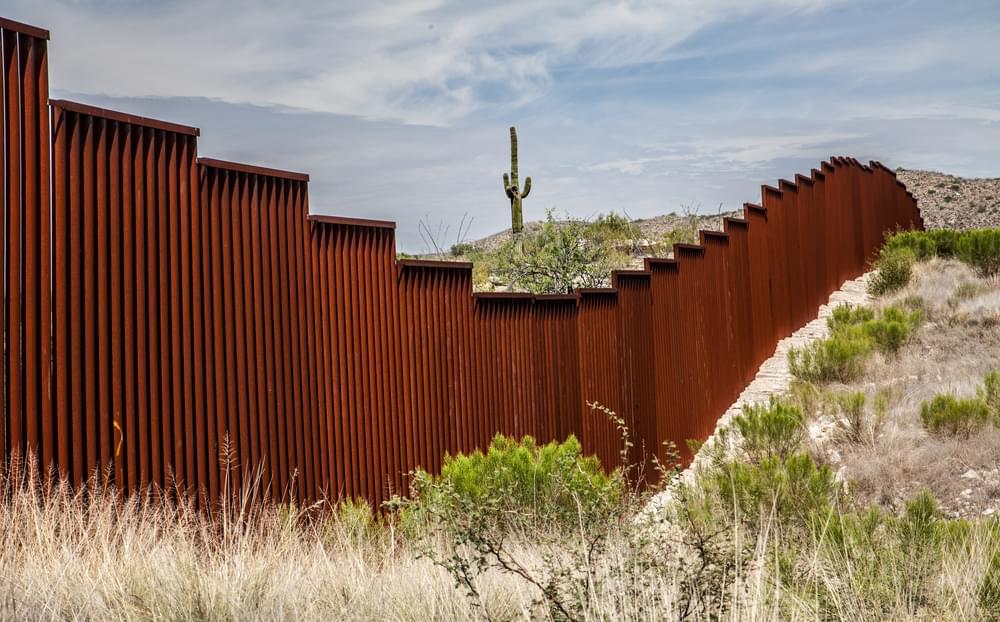photo credit: Chess Ocampo // Shutterstock
It seems like everyone is over Donald Trump and his wall. On Monday, a coalition of 16 states, led by New York and California, have went to the federal courts over Trump and his plan to use emergency power to spend nearly $6 billion on his border wall. Last week, lawmakers granted Trump $1.3 billion for new border barrier, but he declared a national emergency wanting more money.
Joining California and New York are Colorado, Connecticut, Delaware, Hawaii, Illinois, Maine, Maryland, Michigan, Minnesota, Nevada, New Jersey, New Mexico, Oregon and Virginia. All have Democratic governors except Maryland, whose attorney general is a Democrat, and most have legislatures controlled by Democrats.
Ever since Trump threatened to do this after ending our recent government shutdown, many have been questioning if a president should be able to use his higher powers of declaring a national emergency to enforce something such as a border wall rather than gun reform, healthcare, the opioid crisis or any of the other actual serious issues we currently face in our country.
The president himself said after the declaration, “I didn’t need to do this, but I’d rather do it much faster.”
The lawsuit argues that the president does not have the power to divert fund for constructing a wall along the Mexican border because it is Congress that controls spending. In the suit, it states that they plaintiff states are going to court to protect their residents, natural resources, and economic interests. “Contrary to the will of Congress, the president has used the pretext of a manufactured ‘crisis’ of unlawful immigration to declare a national emergency and redirect federal dollars appropriated for drug interdiction, military construction and law enforcement initiatives toward building a wall on the United States-Mexico border,” the lawsuit says.
Congress has challenged the president’s declaration in their own way. There are a few options: filing their own lawsuit or override the declaration that an emergency exists. Some are doubtful Congress does not have all the votes they would need to override the President’s wish, leaving court the likely option.
Trump has his own plan of where the money of his wall could come from: $600 million from a Treasury Department asset forfeiture fund for law enforcement priorities; about $2.5 billion from a military antidrug account, most of which would first be siphoned from other military programs the Pentagon has yet to identify; and $3.6 billion in military construction funds he said he could redirect by invoking an emergency-powers statute.
Written by Clarke Jones
Source: The New York Times
